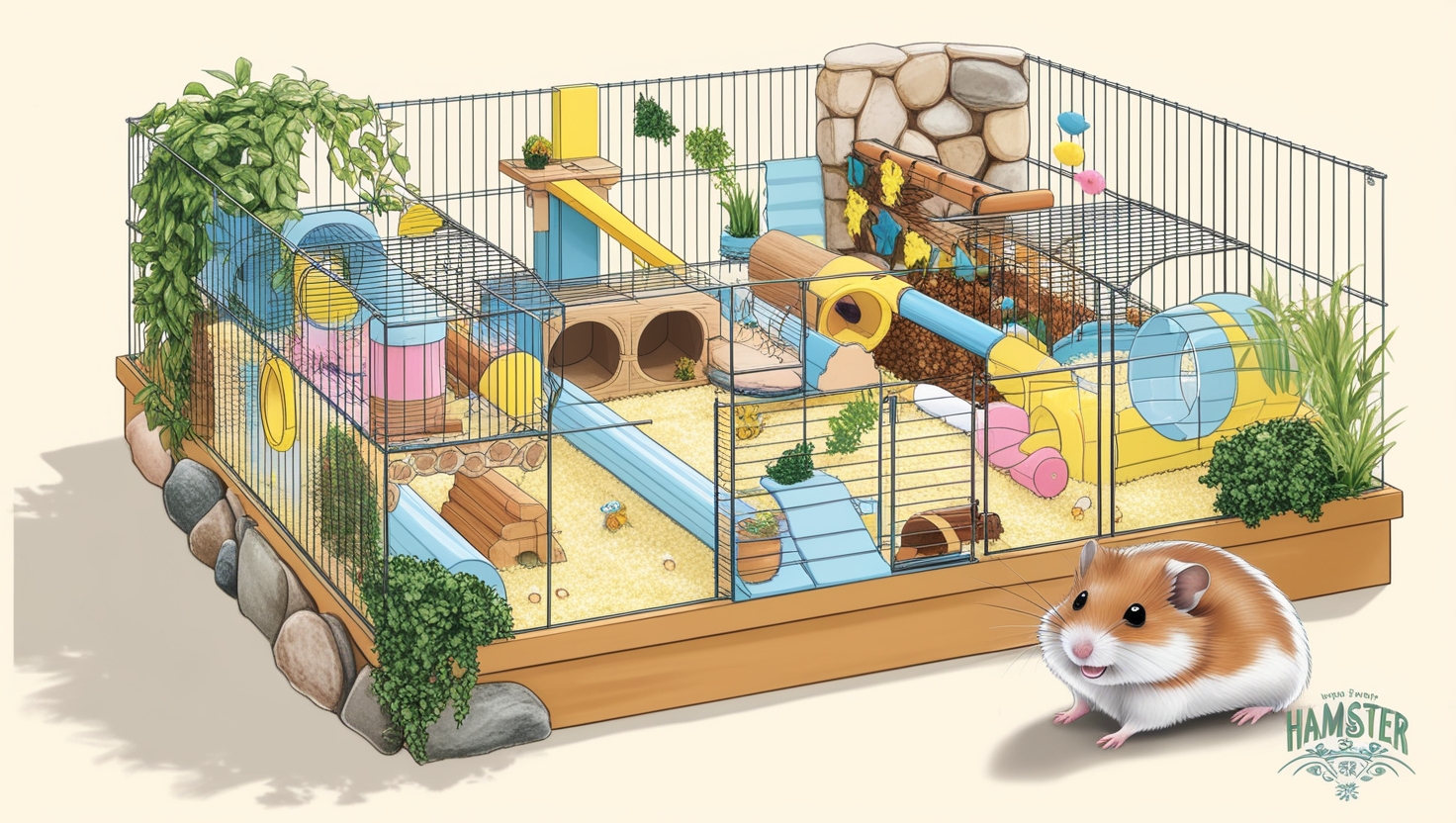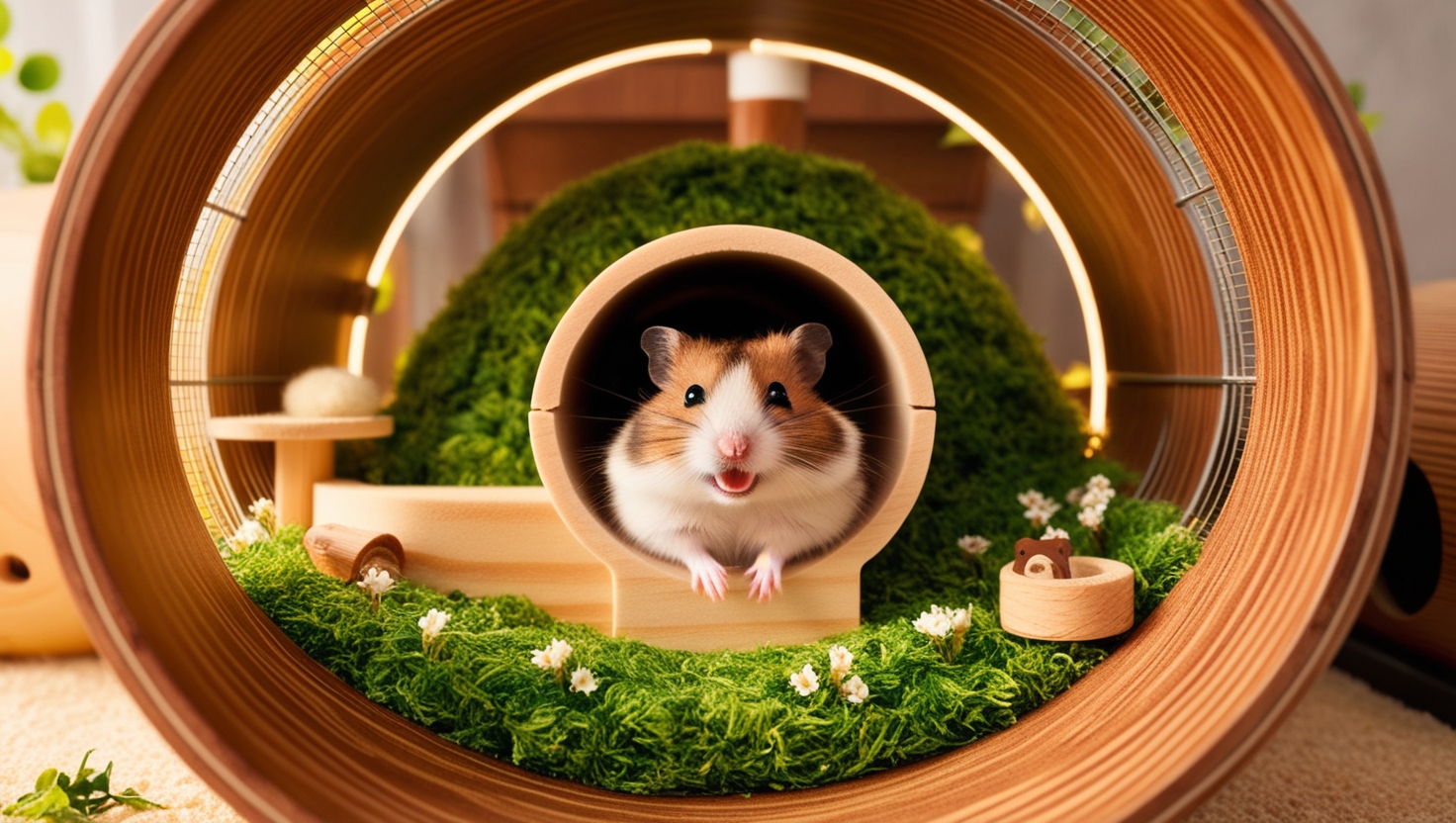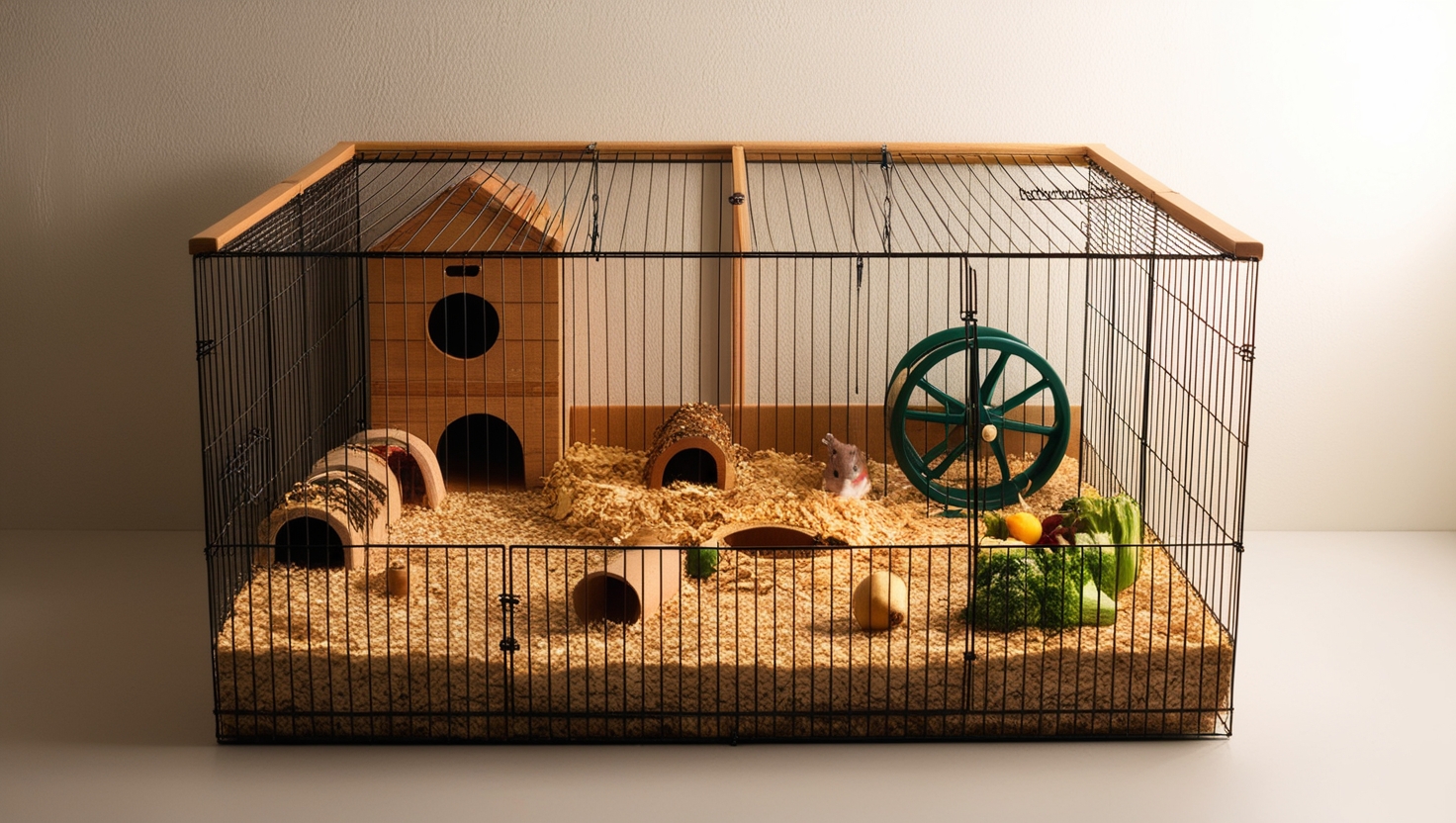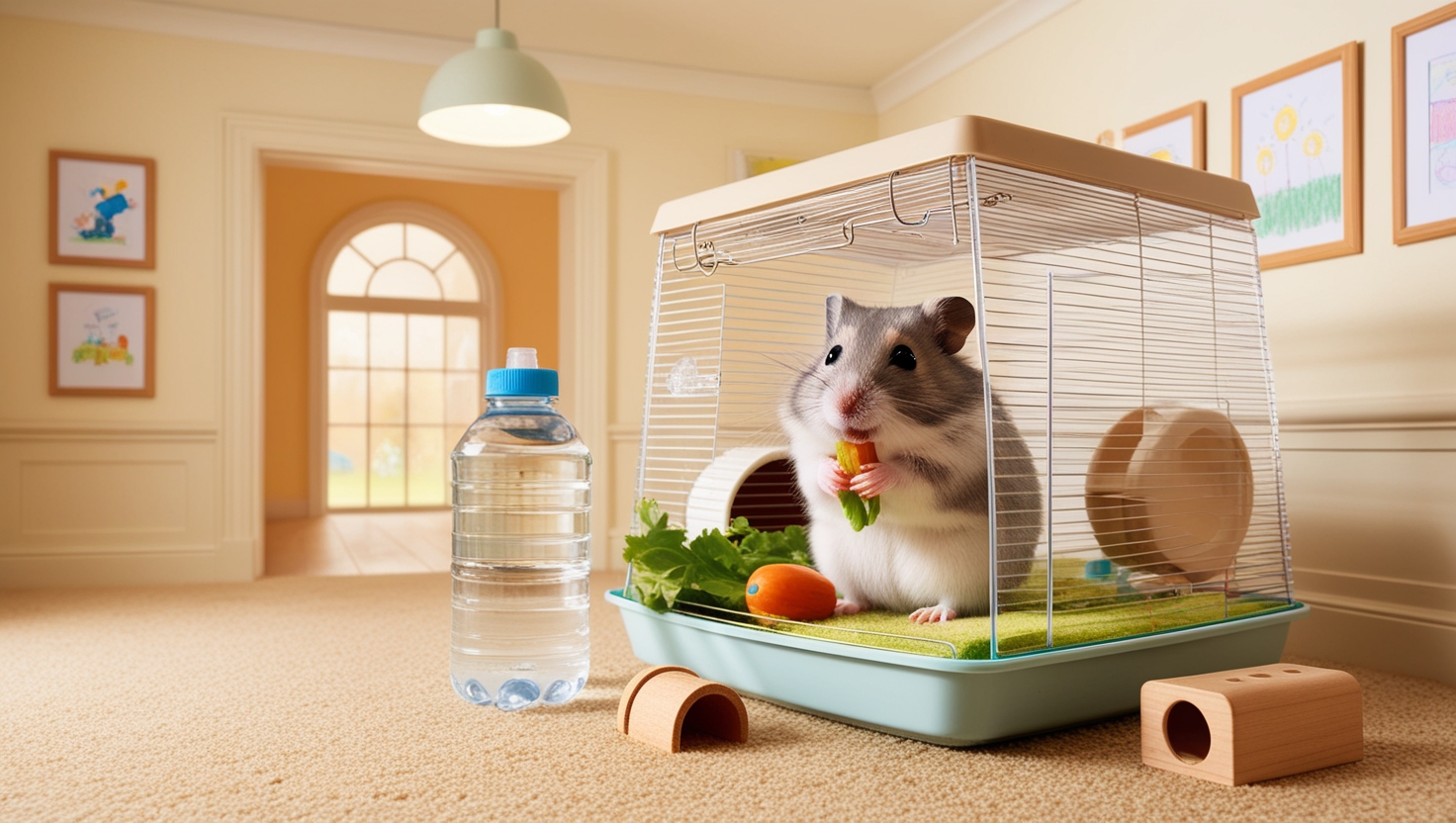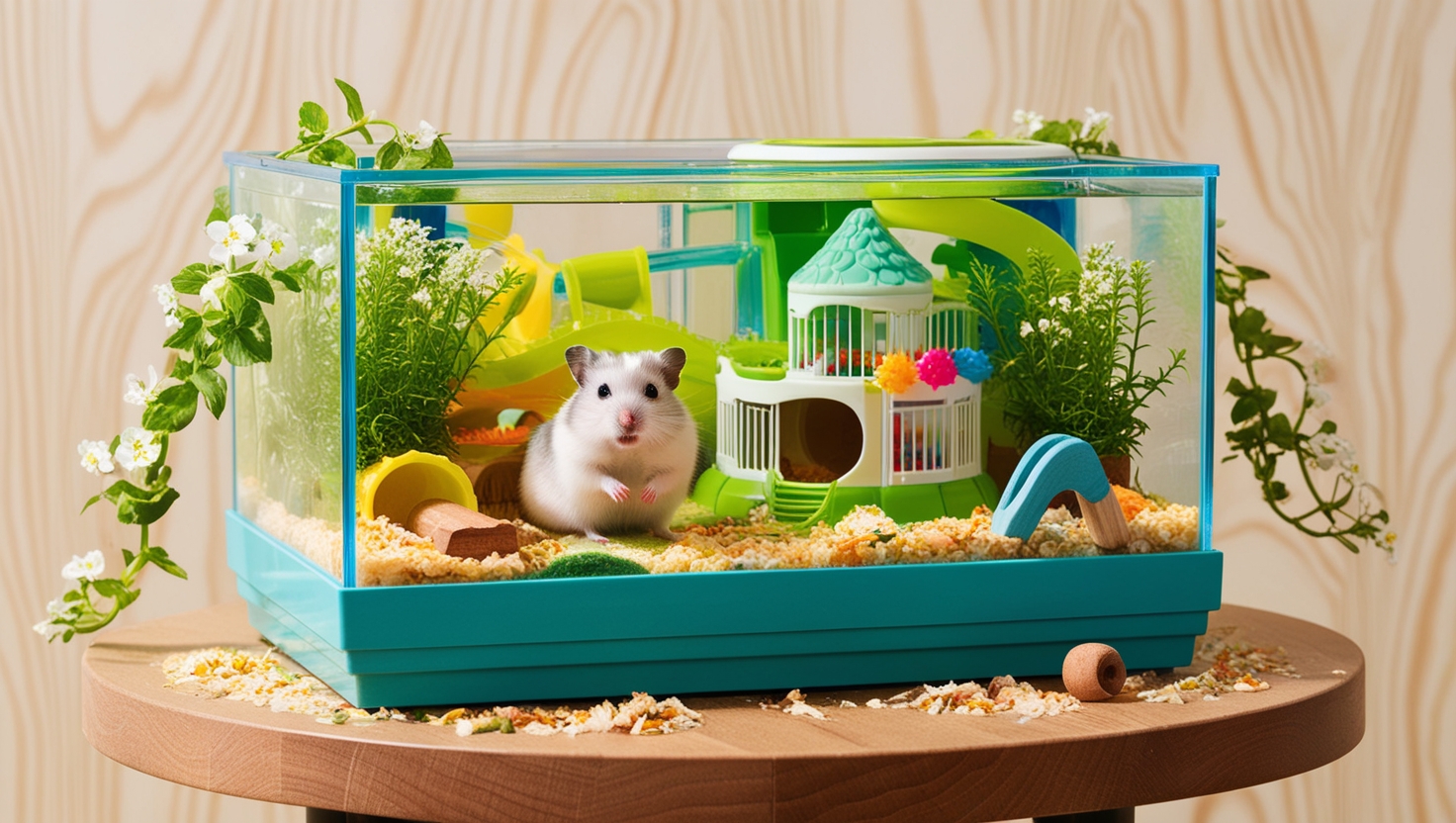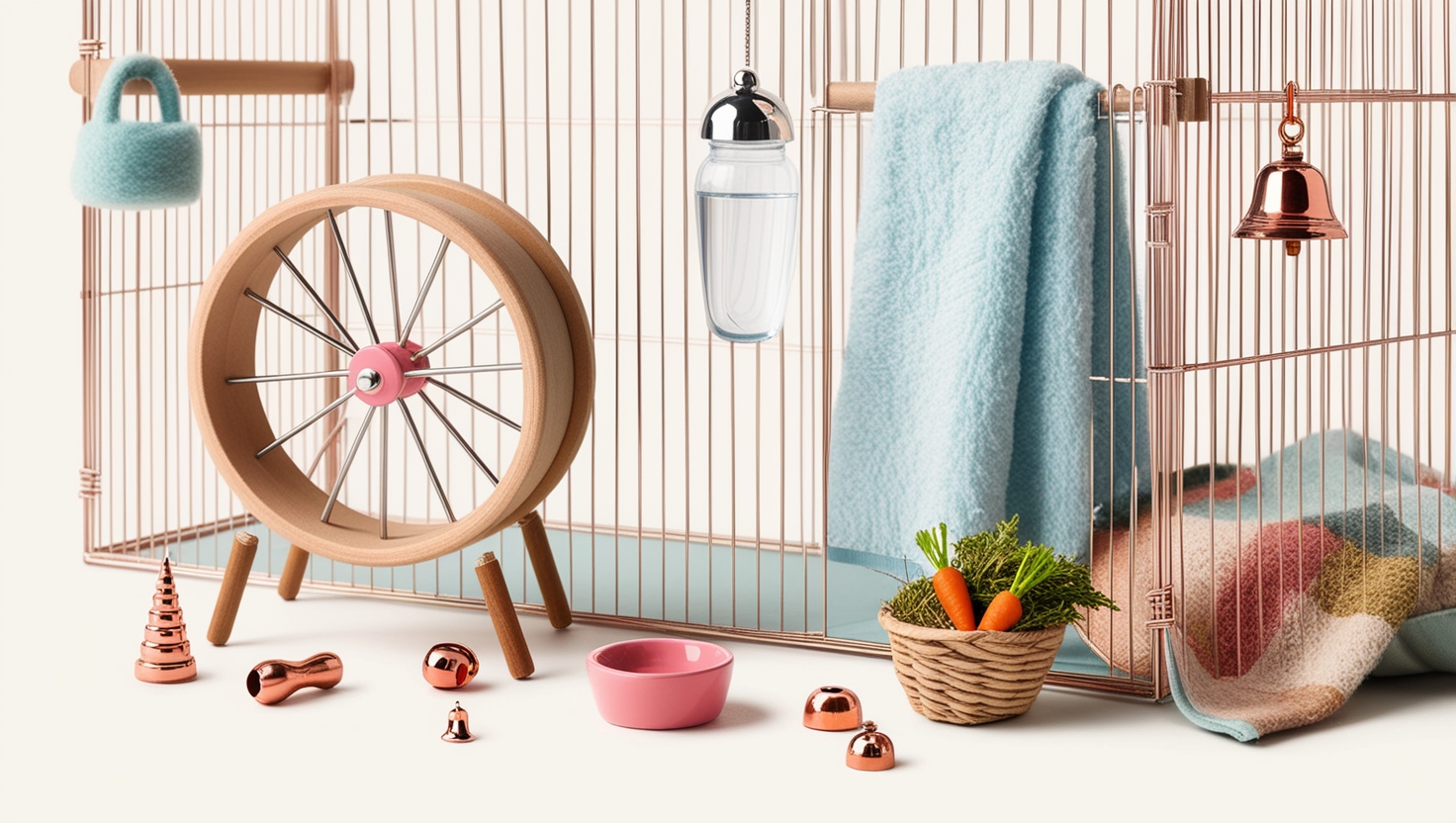Bringing home a new hamster is always exciting, but before you welcome your furry friend, creating a comfortable and stimulating habitat is crucial. A well-designed hamster cage contributes significantly to their overall health and happiness. Think of it as setting up their dream home!
As a dedicated hamster parent and fosterer with years of experience setting up cages for various hamster breeds, I’m here to guide you through the process of selecting the perfect hamster cage. This comprehensive guide will equip you with the knowledge to provide your hamster with a fulfilling and enriching life.
Understanding Basic Hamster Cage Requirements
Just like us, hamsters thrive in a spacious and stimulating environment. When choosing a cage, prioritize:
-
Minimum Size: A cramped cage restricts movement and can lead to stress and health issues. A larger cage with multiple levels allows for ample exploration and enrichment opportunities. Always aim for the largest cage size that fits comfortably in your space.
-
Bar Spacing: For smaller breeds like Roborovski hamsters, bar spacing should be no more than 0.4 to 0.5 centimeters to prevent escapes. Larger breeds like Syrian hamsters can handle spacing up to 1 centimeter.
-
Deep Litter Tray: Hamsters are natural burrowers! A deep litter tray allows for generous bedding depth, encouraging natural digging and burrowing behaviors.
-
Solitary Housing: Hamsters are generally solitary creatures and can become territorial. Always house them individually in separate cages to avoid conflicts and stress.
Exploring Different Hamster Cage Types: Which One Suits Your Furry Friend?
Let’s explore the most popular hamster cage types, each with its pros and cons:
1. Wire Cages: Optimal Ventilation and Interaction
Wire cages are a classic choice, offering excellent ventilation and easy interaction with your hamster. Key advantages include:
-
Superior Airflow: Wire cages promote fresh air circulation, reducing the risk of respiratory issues associated with poor ventilation.
-
Easy Accessory Attachment: The bars allow for simple and secure attachment of water bottles, food dishes, and other cage accessories.
-
Enhanced Visibility and Interaction: The open design allows for clear observation of your hamster and facilitates easier interaction during taming and playtime.
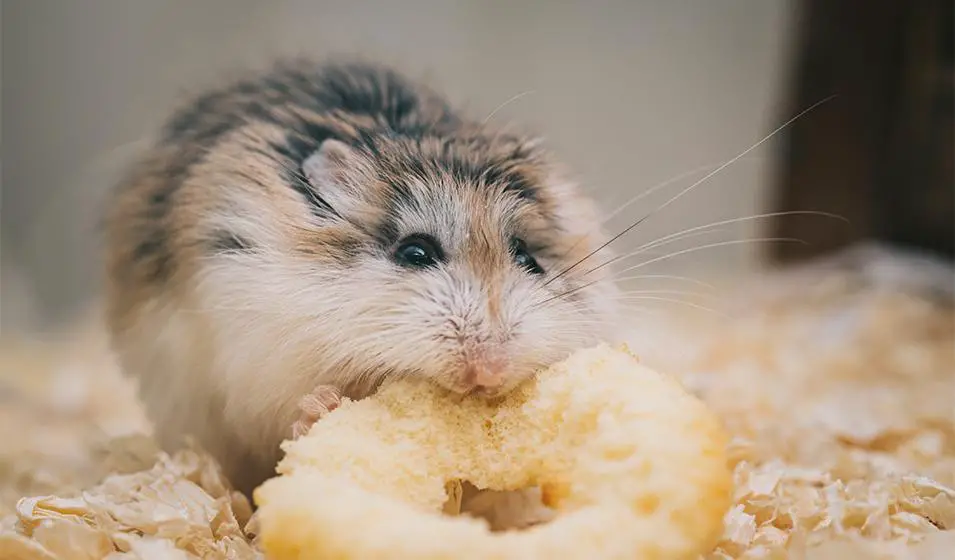 Hamster
Hamster
Image Caption: Wire cages provide hamsters with a well-ventilated and stimulating environment.
However, there are some factors to consider with wire cages:
-
Bar Spacing and Escapes: Ensure the bar spacing is appropriate for your hamster’s size. Smaller hamsters can squeeze through narrow gaps.
-
Falling Risks: Provide ramps or ladders between levels to minimize the risk of falls, especially for cages with significant height.
-
Litter Scattering: Hamsters love to dig and fling bedding, which can lead to a messy area around the cage. Opting for a cage with a deep base or a solid lower section can help contain the mess.
-
Chewing Hazards: Curious hamsters may chew on the bars, so ensure they are made of safe and non-toxic materials.
2. Terrariums: Stylish and Secure
Terrariums offer a sleek and modern aesthetic that can complement your home décor.
Benefits of choosing a terrarium:
-
Reduced Litter Scattering: The enclosed design minimizes bedding mess, keeping your hamster’s living space and the surrounding area tidy.
-
Protection from Drafts: Solid walls provide a more stable and secure environment, shielding your hamster from drafts and sudden temperature changes.
 Hamster
Hamster
Image Caption: Terrariums provide a stylish and secure living space for hamsters.
However, terrariums also come with some drawbacks:
-
Ventilation Challenges: Adequate ventilation is crucial. Look for terrariums with large mesh tops or ventilation panels to ensure proper airflow.
-
Cleaning Difficulties: The enclosed design can make cleaning more challenging compared to wire cages.
-
Limited Climbing Opportunities: Supplement the lack of climbable bars with hamster-safe branches, ladders, and platforms.
3. Plastic Modular Cages: Customizable and Fun
Plastic modular cages offer a fun and customizable option, often featuring tunnels, compartments, and connecting systems.
Advantages of these cages include:
-
Interactive and Engaging: The tunnels and compartments provide ample opportunities for exploration and enrichment, keeping your hamster entertained.
-
Customization: Many modular cages allow you to add or rearrange components, creating a unique and stimulating environment.
-
Variety of Designs: You can find a wide range of designs and colors to match your preferences.
However, keep in mind:
-
Ventilation: Ensure the cage has sufficient ventilation points to maintain fresh air circulation.
-
Durability: Choose a cage made from high-quality, chew-resistant plastic to prevent damage.
-
Cleaning: Intricate designs can make cleaning more time-consuming.
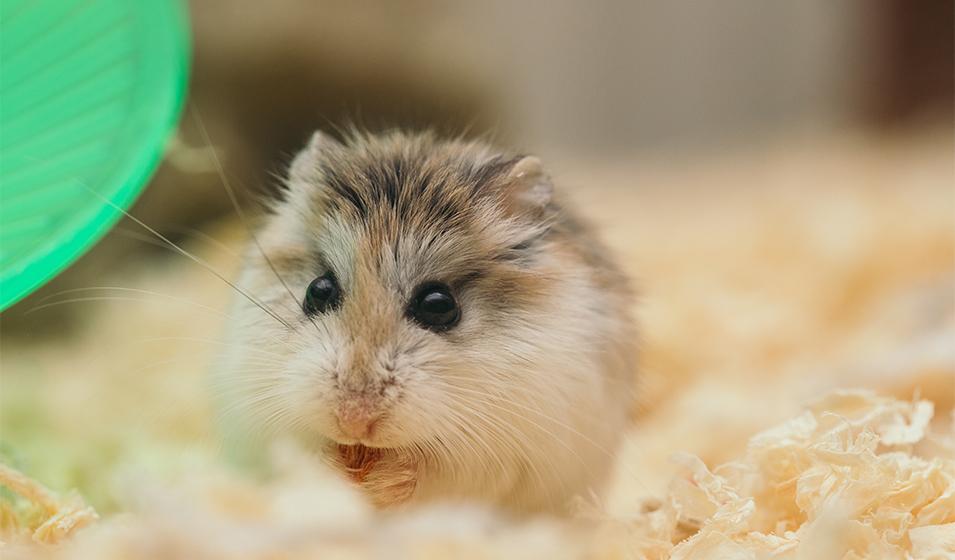 Hamster de Campbell
Hamster de Campbell
Image Caption: Plastic modular cages offer endless customization options.
4. Hybrid Cages: The Best of Both Worlds
Hybrid cages combine elements of wire and solid-walled cages, offering a balance between ventilation and security.
Benefits include:
-
Enhanced Ventilation and Security: Enjoy the benefits of both wire and solid-walled cages with improved airflow and a reduced risk of drafts.
-
Variety of Options: Hybrid cages come in various designs and sizes to suit your needs.
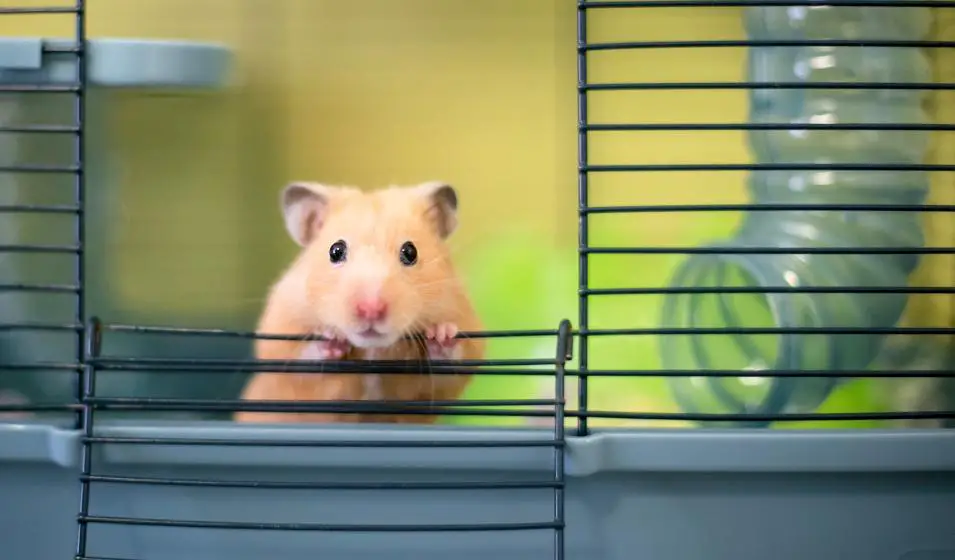 Cage pour hamster
Cage pour hamster
Image Caption: Hybrid cages strike a balance between ventilation and security.
Determining the Right Hamster Cage Size: Bigger is Better!
Hamsters need ample space to thrive. Here’s a general guideline for minimum cage sizes:
- Dwarf Hamsters (Roborovski, Campbell’s, Winter White): At least 450 square inches of floor space.
- Syrian Hamsters: A minimum of 600 square inches of floor space.
Remember: These are just minimums! Providing even more space is always better.
“A spacious cage allows hamsters to engage in natural behaviors, reducing stress and promoting their well-being,” says Dr. Emily Carter, a veterinarian specializing in small animal care.
Essential Hamster Cage Accessories: Creating a Comfortable and Enriching Home
Here’s a checklist of essential accessories to complete your hamster’s new home:
-
Food Dish: Choose a sturdy ceramic dish that’s difficult to tip over.
-
Water Bottle or Bowl: Provide fresh water at all times. Water bottles are generally more hygienic.
-
Hideout or Nest Box: Hamsters need a safe and cozy place to sleep, rest, and escape the light.
-
Exercise Wheel: Choose a solid-surfaced wheel that’s large enough to prevent spinal curvature.
-
Chew Toys: Provide a variety of safe chew toys to satisfy their natural gnawing instincts and keep their teeth trimmed.
-
Bedding: Aspen shavings, paper-based bedding, or safe wood shavings make suitable bedding options. Avoid cedar or pine shavings, as they can cause respiratory issues.
-
Climbing Accessories: Ramps, ladders, platforms, and hamster-safe branches offer opportunities for climbing and exploration.
 Hamster
Hamster
Image Caption: A well-equipped hamster cage provides essential enrichment.
Setting Up Your Hamster Cage: Location, Location, Location
Consider these factors when deciding where to place your hamster’s cage:
-
Avoid Direct Sunlight: Excessive heat can be harmful to hamsters. Keep the cage away from windows with direct sunlight.
-
Minimize Drafts: Place the cage in a well-ventilated area free from drafts, as sudden temperature changes can affect their health.
-
Quiet and Calm: Hamsters are sensitive to noise. Avoid placing the cage in high-traffic areas or near loud appliances.
-
Secure Location: Ensure the cage is placed on a stable surface where it won’t be easily knocked over.
Final Thoughts: Providing a Loving and Stimulating Home
Choosing the right hamster cage is a fundamental step in responsible hamster ownership. By prioritizing size, ventilation, safety, and enrichment, you can create a stimulating and comfortable haven for your tiny companion.
Ready to welcome a hamster into your life? Explore our wide selection of high-quality hamster cages and accessories designed to meet the unique needs of these adorable and fascinating creatures.


